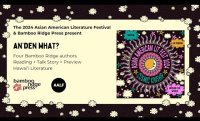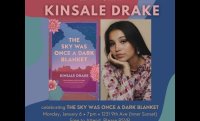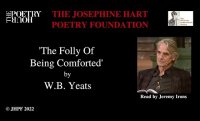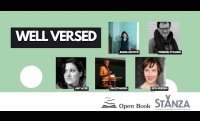Just last month, the bald eagle officially became the national bird of the United States, signed into law by President Biden. Though its official status is new, the bald eagle has long served as an emblem of the country, depicted on the Great Seal and on coins and bills for much of the twentieth century—a symbol of strength, courage, freedom, and independence. Many U.S. states use reptiles, amphibians, insects, fish, and even dinosaurs as their symbols. This week research and consider the various animal emblems and symbols in your midst and choose one to write a poem that draws a personal connection to the animal’s symbolic meaning, whether real or imagined. As you triangulate a relationship between yourself, an animal symbol, and a physical location in this way, explore any unexpected thematic directions within your poem.











